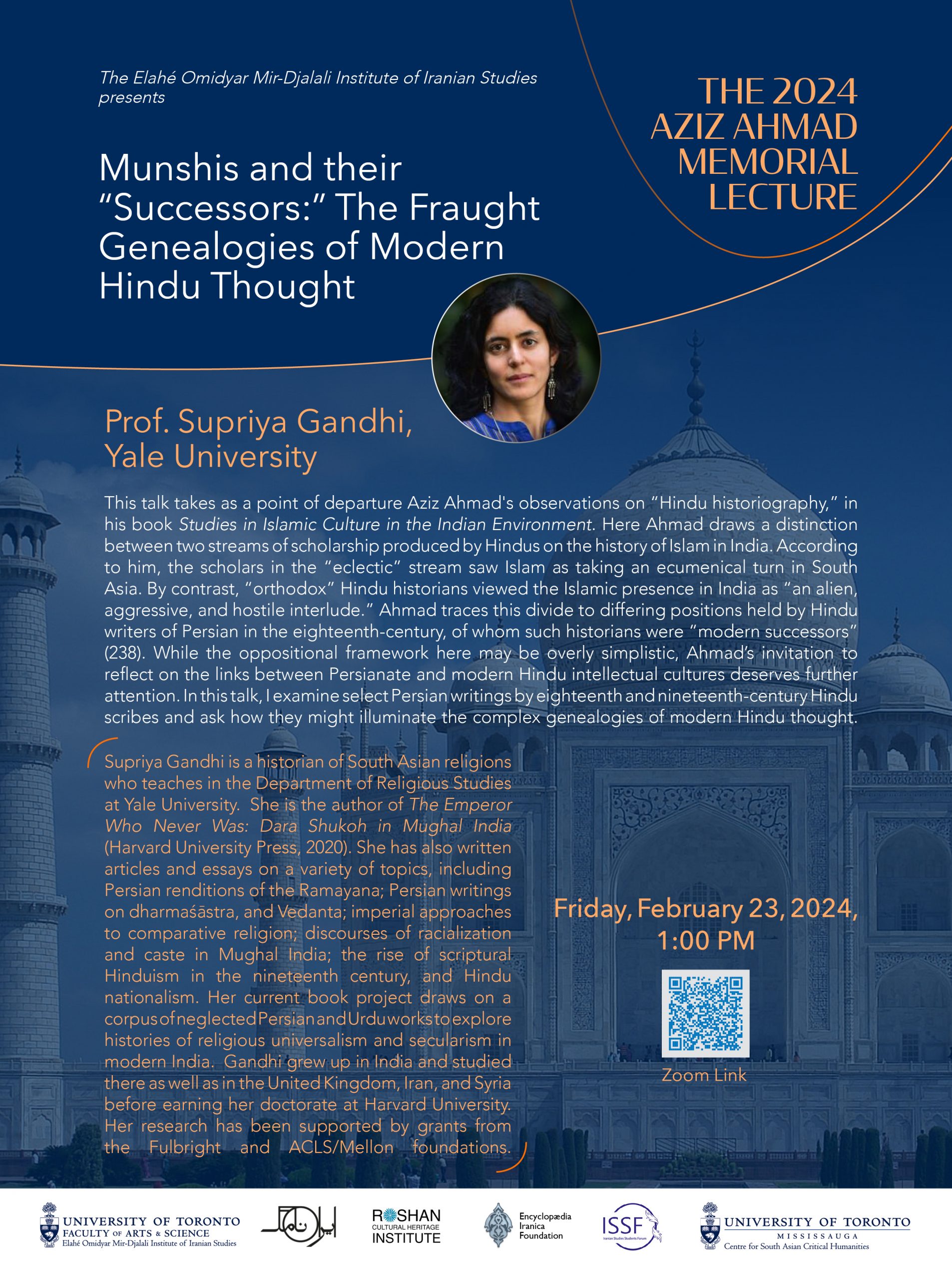

The Elahé Omidyar Mir-Djalali Institute of Iranian Studies
presents the 2024 Aziz Ahmad Memorial Lecture
Munshis and their “Successors:” The Fraught Genealogies of Modern Hindu Thought
Supriya Gandhi, Professor, Yale University
Friday, 23 February 2024, 1:00 p.m. Toronto EST
Zoom Meeting Registration:
https://utoronto.zoom.us/meeting/register/tZcrde6sqjktE9DvQMYOxxDVxf92VeAzL2X7
After registering, you will receive a confirmation email containing information about joining the meeting.
Abstract:
This talk takes as a point of departure Aziz Ahmad’s observations on “Hindu historiography,” in his book Studies in Islamic Culture in the Indian Environment. Here Ahmad draws a distinction between two streams of scholarship produced by Hindus on the history of Islam in India. According to him, the scholars in the “eclectic” stream saw Islam as taking an ecumenical turn in South Asia. By contrast, “orthodox” Hindu historians viewed the Islamic presence in India as “an alien, aggressive, and hostile interlude.” Ahmad traces this divide to differing positions held by Hindu writers of Persian in the eighteenth century, of whom such historians were “modern successors” (238). While the oppositional framework here may be overly simplistic, Ahmad’s invitation to reflect on the links between Persianate and modern Hindu intellectual cultures deserves further attention. In this talk, I examine select Persian writings by eighteenth and nineteenth-century Hindu scribes and ask how they might illuminate the complex genealogies of modern Hindu thought.
Bio:
Supriya Gandhi is a historian of South Asian religions who teaches in the Department of Religious Studies at Yale University. She is the author of The Emperor Who Never Was: Dara Shukoh in Mughal India (Harvard University Press, 2020). She has also written articles and essays on a variety of topics, including Persian renditions of the Ramayana; Persian writings on dharmaśāstra, and Vedanta; imperial approaches to comparative religion; discourses of racialization and caste in Mughal India; the rise of scriptural Hinduism in the nineteenth century, and Hindu nationalism. Her current book project draws on a corpus of neglected Persian and Urdu works to explore histories of religious universalism and secularism in modern India. Gandhi grew up in India and studied there as well as in the United Kingdom, Iran, and Syria before earning her doctorate at Harvard University. Her research has been supported by grants from the Fulbright and ACLS/Mellon foundations.